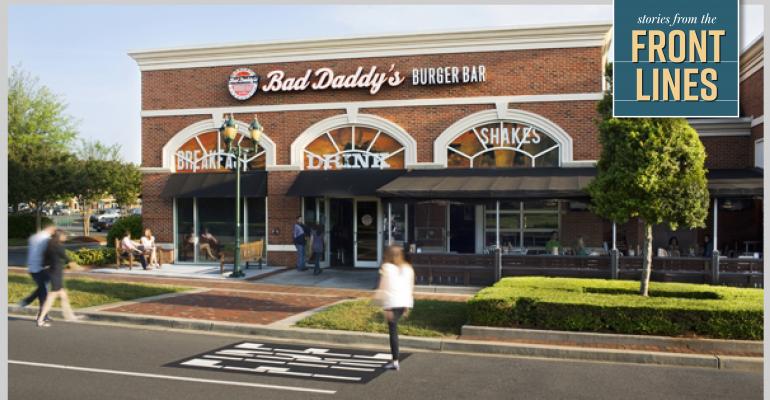With locations in multiple states across the country, Bad Daddy’s Burger Bar was one of the first brands to reopen dining rooms in Georgia in May. Across its 39 locations, the Denver, Colo.-based burger brand’s CEO Ryan Zink believes Bad Daddy’s is poised to thrive post-coronavirus.
Here’s his story:
“Five full months into the crisis in the U.S., I’m starting to experience the effects of long hours, stress and a lapse in healthy habits that occurred during the peak of the crisis’ impact on our business. Now that we are starting to see some stability in the situation, I’ve re-focused on my personal health so that I can maintain the mental clarity needed to make high-quality decisions, remain agile and set a vision for the future of our company in a very uncertain environment. I think one of the challenges for most people, myself included, is that it’s difficult to meet new people – to make new connections – in this environment. So, I’m diligently working to strengthen my existing network of personal and professional relationships, meeting in-person when possible in outdoor environments, or otherwise by video call.
 This pandemic will pass and strong restaurant concepts like ours are well-positioned for a post-COVID future. Our concept is anchored by chef-inspired, scratch-made burgers and exceptional service. Those elements of our business will not change. Our food has always been infinitely customizable to each guest’s preference and that will continue. Service expectations by our guests were already changing pre-COVID, and the pandemic itself has accelerated some of those shifts such as utilizing off-premise offerings, a strong desire for authentic, non-scripted interactions between guests and restaurant team members and the expectation for a customized service experience based upon each guest’s unique preferences.
This pandemic will pass and strong restaurant concepts like ours are well-positioned for a post-COVID future. Our concept is anchored by chef-inspired, scratch-made burgers and exceptional service. Those elements of our business will not change. Our food has always been infinitely customizable to each guest’s preference and that will continue. Service expectations by our guests were already changing pre-COVID, and the pandemic itself has accelerated some of those shifts such as utilizing off-premise offerings, a strong desire for authentic, non-scripted interactions between guests and restaurant team members and the expectation for a customized service experience based upon each guest’s unique preferences.
As an industry, we roll with the punches. Restaurants have through the years continuously adapted to changing regulatory requirements; I expect certain changes associated with the pandemic, such as mask usage by restaurant team members and health screenings to be long-lasting, but this is no different than any other new requirement. As the pandemic subsides and people regain comfort in larger social situations, on-premise use will regain some of its prior traffic. But I see structural changes in customer behavior where delivery and carry-out will permanently increase a brand’s mix. The restaurants that are most successful long-term will be those that are able to serve customers in a way that transcends the four walls and create a sustainable, emotional connection with their guests, whether in an on-premise, carry-out, or delivery dining experience.”
This is part of our Stories from the Front Lines series.

